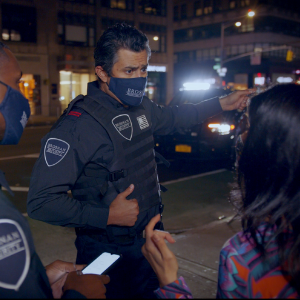Your security guards are your first line of defense against crime and theft. But what about emergency situations? There should never be any confusion about what to do in the case of an emergency at you place of business. We call these emergency procedures “Emergency Response Protocols,” and they are the basic rules that should be followed in the event of an emergency. Your security guards are typically trained for these types of situations by their parent security services company, but your entire workforce should have a working knowledge of what to do in an emergency situation.
 The best way to respond to an emergency is to prepare for it before it happens. Few people can think clearly and logically in a crisis, so it is important to do so in advance, when you have the luxury of time to be thorough.
The best way to respond to an emergency is to prepare for it before it happens. Few people can think clearly and logically in a crisis, so it is important to do so in advance, when you have the luxury of time to be thorough.
In this post we discuss the methodology that can be universally applied to almost any emergency situation; however, you should have specific protocols in place for the most common emergencies. These protocols should be understood by and reviewed with all staff – not just your security team.
Examples of Emergency Situations:
• Bomb Threats
• Active Shooter
• Medical Emergencies (Heart attack, choking)
• Fire
• Smoke Condition
• Gas Leak
• Missing Child
• Suspicious Letter or Package
• System failures or power outages
Response Steps:
Regardless of the type of emergency, the following steps apply:
• Self-Protection: Before your respond to an emergency event, quickly determine the most reasonable way to protect your own life. Understand that you cannot help others if you become incapacitated. Are you safe?
• Initial Assessment: Emergency event must be initially evaluated for appropriate response measures. Who is in danger? What are the risks? Who needs to be contacted?
• Protection of Life: Any imminent threat to the lives of safety of individuals should be addressed immediately.
• Protection of Population: Action must be taken to shelter and care for the larger group of people that may be affected by the event.
• Protection of Property: Action must be taken to limit and control property damage.
• Recovery: Action must be taken to return to normal operations and fully recover. This phase may include post-incident evaluation, investigations into property damage and personnel injury.
• Documentation: Once people and property are made safe; it is important to document the event. Incident reports should be as detailed as possible. If security cameras captured any of the event, their footage should be copied and made secure.
The response steps are listed generally in priority order, although it is likely that several will occur simultaneously. These steps always apply, but each step becomes more relevant or less relevant depending on the actual situation. For instance, self-protection is incredibly important in an active shooter scenario, but probably less of an issue in a missing child situation.
Security Officers Help Keep Customers and Employees Safe
In the event of an on-site emergency, your security officers or security guards can make a life-or-death difference in the outcome of the event. Besides their training, a security guard from a reputable security services firm will have access to resources that go beyond your own in-house capabilities. In the event of an emergency, your security officer will be able to notify multiple agencies quickly increasing the likelihood the help will arrive faster.
When hiring a security guard company, inquire about their emergency capabilities. Do they have GSOC capabilities? GSOC is short for Global Security Operations Center. A GSOC is unique in its ability to aggregate data through many passive and active lines of communication and provide awareness around a specific event or multiple events.
When a security guard calls in an emergency situation to their command center, the information is passed through the GSOC where analysts decide what to do next. Among other things, these actions could include calling the police, fire, or ambulance agencies, sending a tactical response team, triggering alarms, initiating preprogrammed emergency procedures, and alerting off-site company management that there is an active emergency or threat. All of this happens very quickly and usually while the security officer has moved on to helping other people or securing the area.
Conclusion
Hiring a security guard company is more than evaluating which firm can supply people in uniform for the least amount of money per hour. That not to say that cost is not important; but there is no substitute for a great security team and assurance that you get in knowing that you, your employees, and your customers are protected. Properly trained and supported security guards are equipped to deliver that kind of assurance.
Thanks for reading!
Would you like a security services quote? Let us know how we can help!


